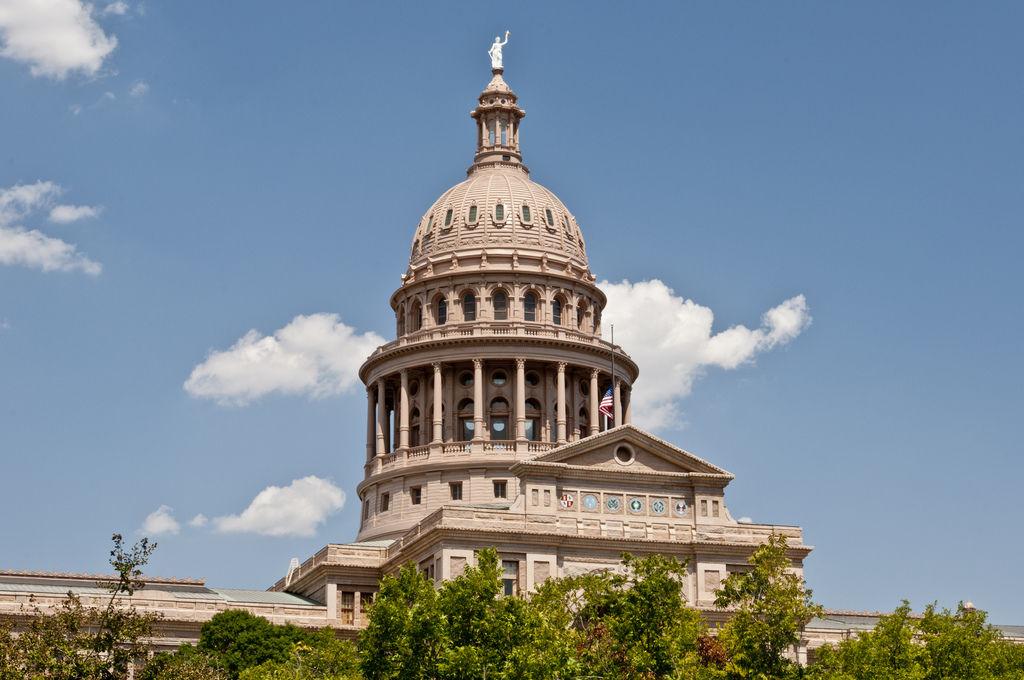Republican State Rep. Bryan Slaton is pursuing a bill in the Texas legislature that would seek to have Texans vote on independence from the U.S.
Specifically, the bill would have citizens “vote on whether or not the state should investigate the possibility of Texas independence, and present potential plans to the legislature,” according to Slaton on Twitter, a process that would be done through a statewide vote on Nov. 7.
If a majority of votes agree with the initiative, H.B. 3596, or the TEXIT Referendum Act, would authorize the creation of a legislative committee to investigate the “most effective and expeditious way” for Texas to become an independent nation. The TEXIT slogan references the BREXIT portmanteau used to signal the United Kingdom’s separation from the European Union in 2019-20.
Once formed, this committee would look into renaming Texas to The Republic of Texas, the feasibility of removing provisions that exist “solely as a consequence of Texas’ status as a state” and any potential agreements that would have to be negotiated with the United States as a result of a potential secession, along with other things.
In a statement, Slaton states that “the Texas Constitution is clear that all political power resides in the people” and that “it is time to let the people of Texas make their voices heard.”
However, Article VI, Clause 2 of the U.S. Constitution establishes the Supremacy Clause — a standard meaning that federal law, including Supreme Court rulings, supersedes all state laws and constitutions. Any finding, report or conclusion from this committee that states Texas secession is independently possible would be unconstitutional under the Supreme Court case Texas v. White.
“When, therefore, Texas became one of the United States, she entered into an indissoluble relation,” the Texas v. White ruling reads. “The union between Texas and the other States was as complete, as perpetual, and as indissoluble as the union between the original States.”
Both Democratic and Republican politicians have criticized the bill.
The Republican Party of Texas’ 2022 station convention legislative priorities included an appeal for Texas’ independence.
“We urge the Texas Legislature to pass bill in its next session requiring a referendum in the 2023 general election for the people of Texas to determine whether or not the state of Texas should reassert its status as an independent nation,” the report reads.
The future of the bill is uncertain, however. In recent weeks, Slaton has received calls to resign due to alleged inappropriate sexual behavior with an intern.
“He needs to resign,” Republican Rep. Steve Toth wrote on Twitter. “Now!”
Many Texas institutions are reliant on federal funding — such as Texas A&M, whose founding was only possible with assistance from the Morrill Act passed by Congress.
Biden’s $1.2 trillion infrastructure bill passed in 2021 will allocate an estimated $36.7 billion for Texas projects, with the federal government allocating another estimated $40 billion for Texas from the American Rescue Plan Act of 2021. That same year, A&M received more than $100 million in federal funding.
Jeffrey Abramson, a professor at the University of Texas, spoke on the proposed bill, stating that the move is “political posturing” and arguing that, in reality, Texas independence “would mean war.”
Aggies were surprised at the bill’s existence, often not even sure what would happen if the state were to secede, such as kinesiology freshman Natalia Casas, who wouldn’t support an independent Texas.
“I find that quite ridiculous, personally,” Casas said. “I think Texas is a big part of the United States as a whole. I cannot imagine it being a country all on its own.”
General engineering freshman Charles Kall concurred, calling the idea “a little silly.”
“I think Texas leaving the United States would be really bad,” Kall said. “We rely a lot on the United States for money and grants and things.”
Both students stated that if they were to vote in the referendum now, they would vote against the proposed ideas.
“I would vote no — not saying that Texas couldn’t do it,” Casas said. “I believe it could be done, but the idea of it just sounds crazy.”










